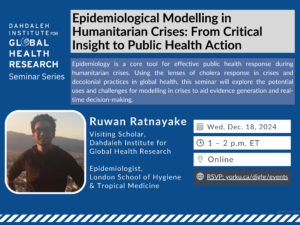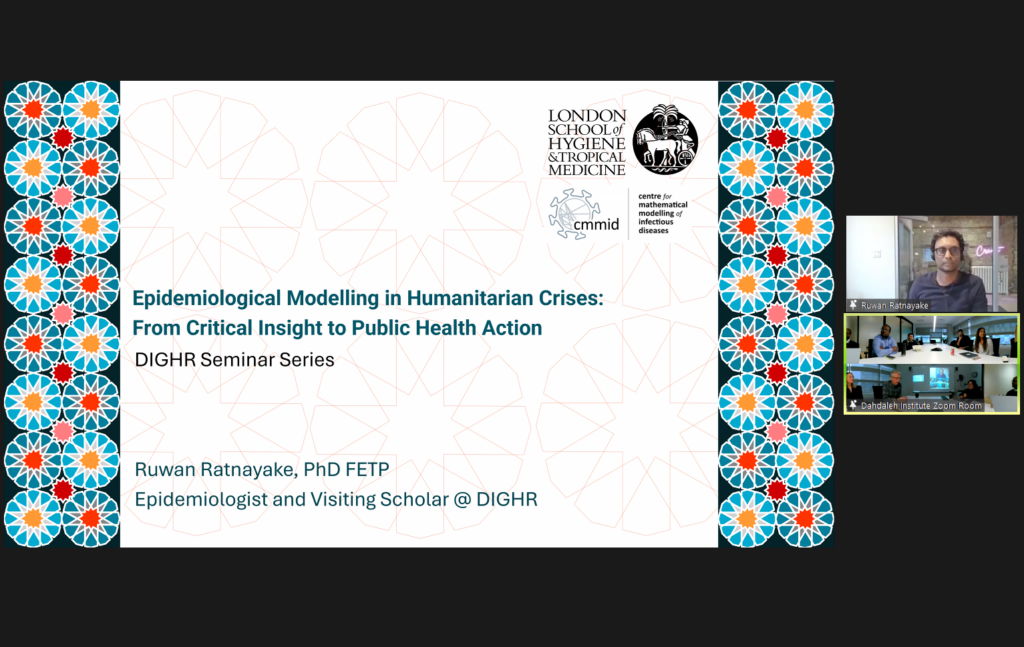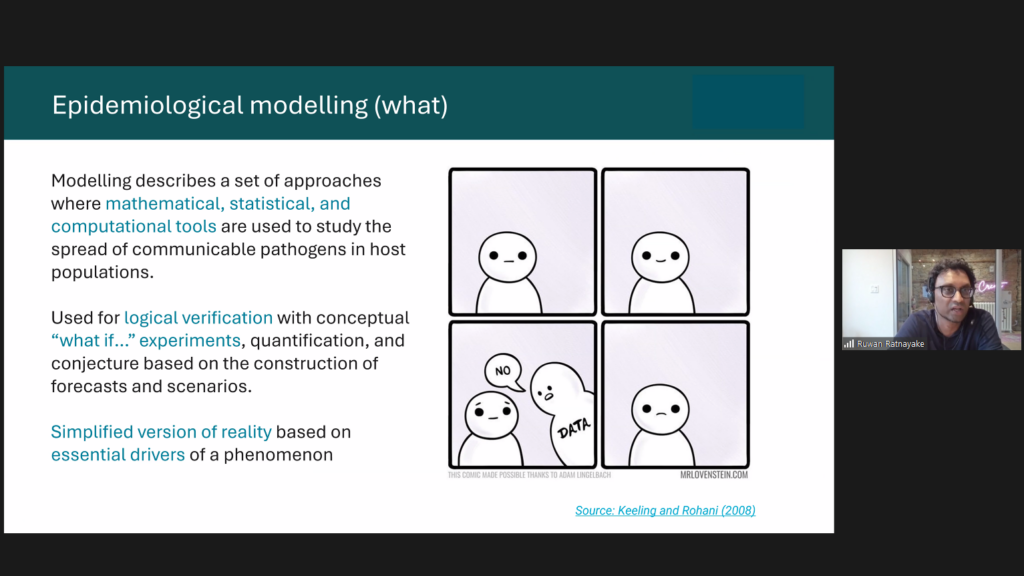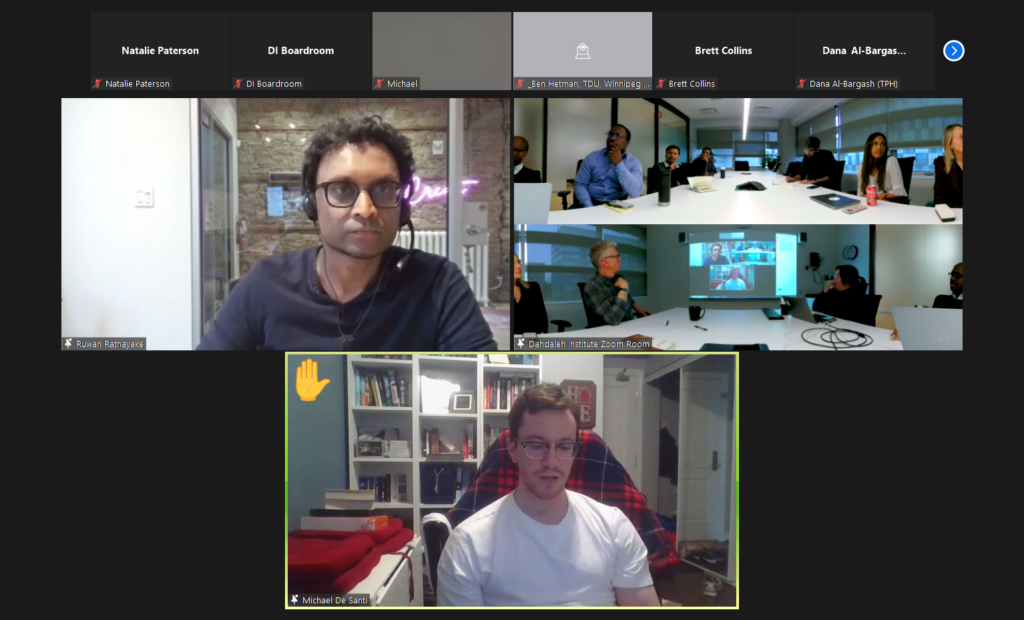Post
Published on February 6, 2025

On December 18, Dahdaleh visiting scholar Dr. Ruwan Ratnayake emphasized the important role of epidemiology in public health responses during humanitarian crises. The seminar highlighted the increasing integration of modern analytical methods such as mathematical modeling, into the epidemiological toolbox.
Dr. Ratnayake detailed how modeling is used to describe the epidemiology of communicable diseases, convert transmission dynamics and simulate effective public health interventions in crisis affected populations. The seminar explored these concepts through the lens of cholera response, using case studies to illustrate the utility and challenges of modeling in real time decision making.
The cholera response in the Democratic Republic of the Congo provided a clear example. Dr. Ratnayake explained how Case Area Targeted Interventions (CATI) were employed to rapidly address cholera outbreaks within localized high risk zones. Spatial modeling demonstrated that CATI, combined with single dose cholera vaccines and water treatment, effectively contained outbreaks within 60 days while utilizing fewer resources compared to mass interventions. The study underscored the value of modeling in optimizing interventions in resource constrained settings.



Dr. Ratnayake also introduced a conceptual framework linking direct and indirect health effects of crises such as injuries, mental health conditions and preventable diseases to outcomes and broader public health impacts. He emphasized how modeling can enhance early warning systems, improve risk assessments and facilitate better resource allocation.
The seminar concluded with a discussion on the challenges of modeling in crises including data scarcity, the need for decolonial practices in global health and building sustainable modeling capacities in affected regions. Dr. Ratnayake highlighted the potential of modeling to help with evidence generation and drive real time public health actions, explaining its importance as a transformative tool in humanitarian contexts.
Watch the seminar presentation below: https://www.youtube.com/watch?v=Z8S_7W_9Xjk
Connect with Dr. Ruwan Ratnayake.
Themes | Planetary Health |
Status | Active |
Related Work |
N/A
|
Updates |
N/A
|
People |
You may also be interested in...
Publication – Integrating Blue: How Do We Make Nationally Determined Contributions Work for Both Blue Carbon and Local Coastal Communities?
Dahdaleh Institute Planetary Health Fellow Byomkesh Talukder was one of 33 experts in academia, project development, and policy who each developed ten key questions about how to implement Nationally Determined Contributions (NDCs) to optimize Blue ...Read more about this Post
Dahdaleh Institute Welcomes Benjamin Ewert as a Visiting Scholar
The Dahdaleh Institute for Global Health Research is delighted to welcome Professor Benjamin Ewert as a new member, who joins the Institute as a visiting scholar for one year starting June 2025. Prof. Dr. Benjamin ...Read more about this Post
BioCAM4: Biodiversity Integration in Climate Adaptation and Mitigation Actions for Planet, People, and Human Health
BioCAM4 is an interdisciplinary and trans-sectoral research partnership dedicated to: Developing methodologies for mapping NBCA trends worldwide and assessing local opportunities and challenges for NBCAs with dedicated deep-dive studies in two world regions: East Africa ...Read more about this Project
